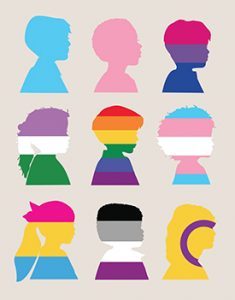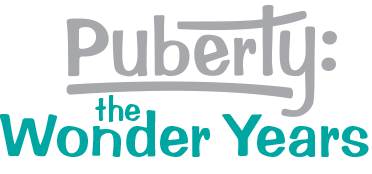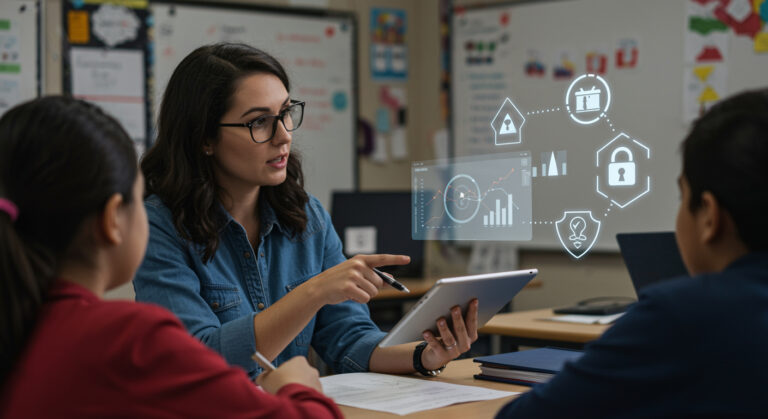Would you like to make sure all your students feel included in your class? When you teach about puberty, are you unsure how to include your lesbian, gay, bisexual, plus (LGB+) students? Let’s talk about a couple of ways to be more inclusive. This post will share inclusivity tips for LGB+ students.
Tip 1: Ensure representation.
Throughout history, LGB+ people have made important contributions in science, math, and the arts. Yet, their biographies have often erased important parts of their lives: their relationships and attractions. This has left LGB+ kids without important role models that can help them feel less isolated. Include references to people who are gay and lesbian in classroom readings and discussions.
Tip 2: Know sexual orientation-related terms.
The human brain is hard-wired to categorize people. It’s how we try to make sense of our world. One way the brain tries to categorize people is according to sexual orientation. Yet, the terms people use to describe sexual orientation have increased in number and nuance over the last several years. This may leave you feeling confused as you try to speak in a way that is respectful of diversity. Learn more about these terms, but also recognize that terminology is always changing.
Tip 3: If you don’t understand, learn more.
LGB+ people have existed in every culture across the centuries. Some cultures have embraced people who displayed sexual orientation diversity, and others have persecuted anyone who appeared to be other than heterosexual. People continue to debate whether sexual orientation is a “lifestyle” (even “sin”) or biologically influenced. New research in genetics “reinforces the understanding that same-sex sexual behavior is simply “a natural part of our diversity as a species…. It shows that there are genetic factors, which we had suspected long ago … but it also shows those genetic factors do not tell the whole story.” Learning more is a great way to help all students embrace the range of diversity that enriches our lives.
Tip 4: Help families support their kids.
LGB+ kids who are ostracized by their peers and families are at much higher risk of negative outcomes than kids whose families support them. Help families support their LGB+ kids by sharing information and resources.
Sign up to receive a FREE sample lesson to see what Puberty: The Wonder Years is all about.
Sources:
- LGBTQ+ Inclusivity in Schools: A Self-Assessment Tool, CDC
- Teaching Puberty for LGBTQIA+ Diversity, Inclusion, and Beyond, American Journal of Sexuality Education
- Family Acceptance Project
- “History of LGBT Social Movements,” American Psychiatric Association
- “There’s no one ‘gay gene,’ but genetics are linked to same-sex behavior, new study says,” Washington Post.
- “What an LGBTQ-Inclusive Sex Education Would Have Taught You,” HuffPost
- “When The Conversation Doesn’t Include You: LGBTQ+ Sex Ed In A Small Town,” NPR
updated 2024-3-19



